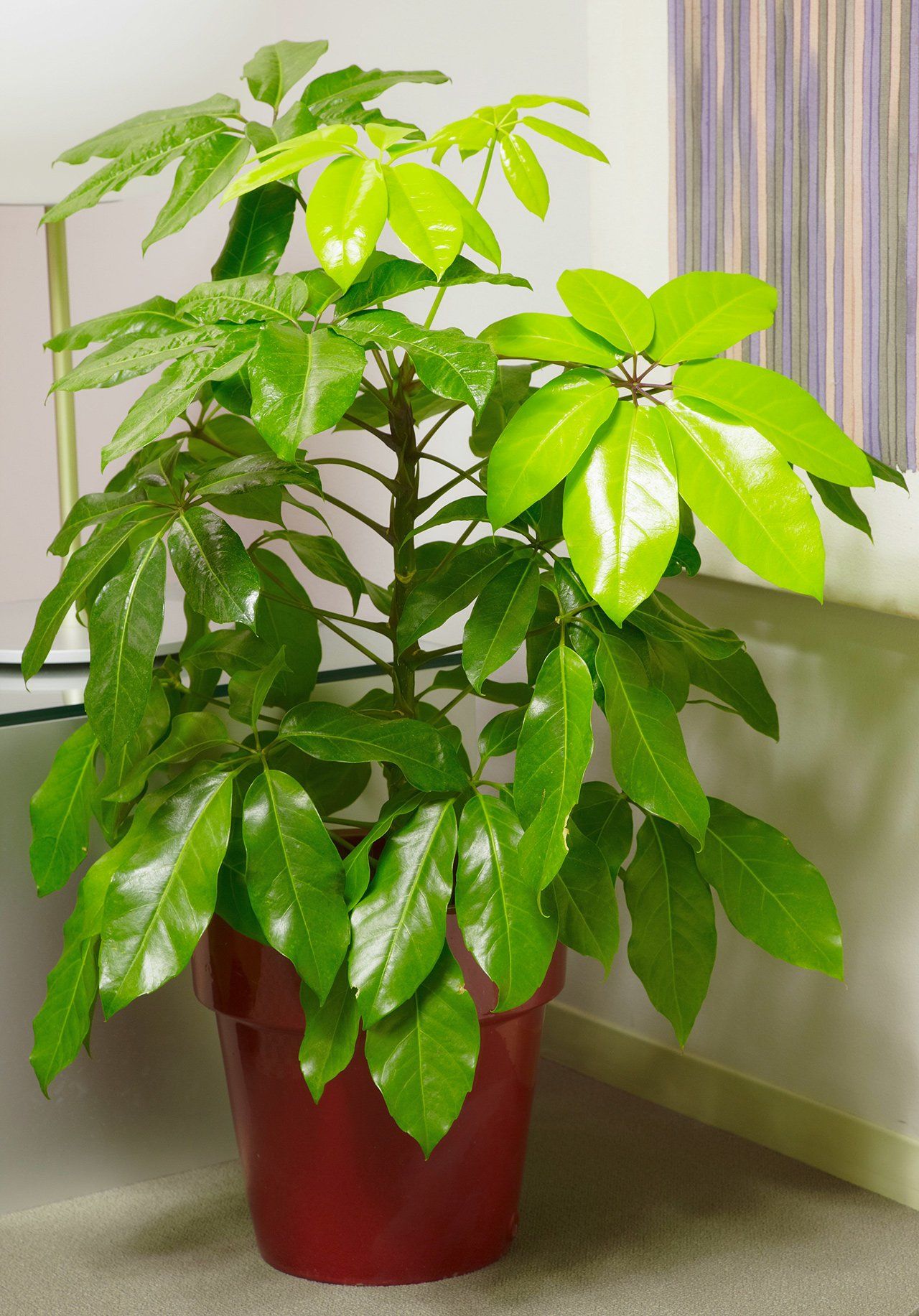Want to transform your living space into a lush, vibrant oasis? Big houseplants are the perfect solution! These leafy giants not only add a touch of nature but also purify the air, boost your mood, and create a tranquil atmosphere. Whether you’re a seasoned plant parent or just starting your indoor jungle journey, this guide will equip you with everything you need to know about choosing, caring for, and styling magnificent big houseplants.
Picking Your Perfect Green Giant: Size, Light, & Lifestyle
Choosing a big houseplant is like finding a new roommate – compatibility is key. Consider these factors before bringing home your new leafy companion:
Sunlight: Light is a plant’s lifeblood. Observe the natural light in your home. South-facing windows receive the most direct sunlight, while north-facing windows get the least. East and west-facing windows offer a mix. Some plants, like the sun-loving fiddle-leaf fig, thrive in bright, indirect light, while others, like the resilient snake plant, tolerate lower light conditions. Matching a plant’s light needs to your home’s lighting is essential for its health.
Space: A towering Monstera deliciosa might look stunning in a spacious loft but could overwhelm a cozy studio. Measure your available floor space and ceiling height before bringing home a large plant. If floor space is limited, consider hanging planters [https://www.wavesold.com/big-indoor-plants] and shelves to create a vertical garden. This allows you to showcase your green giants beautifully, even in smaller spaces.
Lifestyle: Are you a dedicated plant enthusiast or seeking low-maintenance companions? Some big houseplants, like the dramatic dracaena, appreciate regular misting and attention, while others, like the easygoing ZZ plant, are more forgiving. Choose plants that suit your lifestyle and level of commitment.
A Parade of Leafy Giants: Exploring Varieties
The world of big houseplants is vast and diverse. Here are some popular choices:
- Ficus Family: This versatile group includes the fiddle-leaf fig, rubber plant, weeping fig, and more. They bring sophistication and a tree-like presence to any room. The African fig, for instance, is known for its rapid growth and tolerance to various conditions.
- Philodendrons: From the climbing heartleaf philodendron to the majestic split-leaf philodendron (also known as Philodendron Selloum), these tropical delights offer lush, vibrant foliage. The Selloum, with its deeply lobed leaves, is a particularly striking option.
- Palms: Palms evoke a sense of tranquility. The majestic Kentia palm and the more compact parlor palm add elegance and height. The Areca palm, with its feathery fronds, is another excellent choice for bringing a tropical vibe indoors.
- Dramatic Dracaenas: The Dracaena fragrans (corn plant) and Dracaena marginata (dragon tree) are known for their striking foliage and relatively easy care. They can tolerate some neglect and are excellent air purifiers.
- Unique Specimens: For something different, consider a striking yucca, a vibrant croton, a bamboo cluster, or perhaps even a Beaucarnea recurvata (ponytail palm) with its unique bulbous base.
For an even bolder statement, explore the world of big monstera plants, known for their dramatic, fenestrated leaves.
Nurturing Your Green Giants: A Simple Care Guide
Don’t be intimidated by their size – big houseplants are often surprisingly easy to care for.
Watering Wisely: Avoid overwatering, which can lead to root rot. Allow the soil to dry out slightly between waterings. Stick your finger a few inches into the soil; if it feels dry, it’s time to water.
Light & Location: Place your plant in a spot that receives the appropriate amount of light. Drooping leaves may suggest insufficient light, while scorched leaves may indicate too much direct sunlight.
Humidity Helpers: Tropical plants prefer higher humidity. Use a humidifier, group plants together, or mist them regularly. You can also create a humidity tray by placing pebbles and water in a shallow dish and setting the pot on top (make sure the pot’s bottom doesn’t sit in the water).
Feeding & Pruning: Fertilize during the growing season (spring and summer) with a balanced liquid fertilizer. Prune to maintain shape and size, removing any leggy or overgrown branches.
Repotting: As your plant grows, it may need repotting. This usually happens every one to two years. Choose a pot slightly larger than the previous one and use fresh, well-draining soil.
Beyond Beauty: Reaping the Rewards
Big houseplants offer numerous benefits:
- Air Purification: They filter toxins and pollutants, improving indoor air quality.
- Stress Reduction: Studies suggest that being around plants can lower stress levels and promote a sense of calm.
- Mood Enhancement: Greenery can positively impact mood and overall well-being.
- Aesthetic Appeal: Large plants serve as stunning focal points, soften harsh corners, and add life to any space.
Designing with Green Giants: Styling Tips
- Focal Points: A large plant can anchor a room and draw the eye.
- Space Dividers: Tall plants can create natural dividers in open-plan spaces.
- Vertical Gardens: Use hanging planters and shelves to maximize vertical space.
- Vignettes: Create small groupings of plants with varying heights and textures.
- Contrast & Texture: Play with contrasting textures and colors of pots and surrounding furniture to enhance visual interest.
Troubleshooting: Common Plant Concerns
Even with the best care, issues may arise.
| Problem | Possible Causes | Solution |
|---|---|---|
| Yellowing leaves | Overwatering, nutrient deficiency | Adjust watering, fertilize appropriately |
| Leaf drop | Overwatering, underwatering, temperature fluctuations, pests, acclimation to a new environment | Adjust watering, check for pests, maintain consistent temperature, give the plant time to adjust |
| Pests | Various insects | Use insecticidal soap, neem oil, or other appropriate treatment |
What are the Best Large Indoor Plants?
Here’s a broader look at excellent choices:
| Plant Name | Light Needs | Care Level | Notes |
|---|---|---|---|
| Fiddle Leaf Fig | Bright, indirect | Moderate | Can be sensitive to environmental changes |
| Rubber Plant | Bright, indirect | Easy | Tolerates some neglect |
| Kentia Palm | Medium to bright | Easy | Great for beginners |
| Majesty Palm | Bright, indirect | Moderate | Needs consistent moisture |
| Fishtail Palm | Bright, indirect | Moderate | Unique, segmented leaves |
| Sweetheart Tree | Bright, indirect | Moderate | Charming heart-shaped foliage and unique braided trunk |
| Yucca | Bright, direct | Easy | Drought-tolerant |
| Croton | Bright, indirect | Moderate | Loves humidity |
| Snake Plant | Adaptable | Very Easy | Tolerates low light |
| Monstera Deliciosa | Medium to bright | Easy | Popular for its fenestrated leaves |
| Bird of Paradise | Bright, indirect | Moderate | Striking flowers (in ideal conditions) |
| ZZ Plant | Low to Bright, indirect | Very easy | Extremely drought-tolerant |
What is the Largest Houseplant?
“Largest” can refer to height or overall volume. Here are some contenders:
| Plant | Max Indoor Height (approximate) | Light Needs | Humidity Needs |
|---|---|---|---|
| Alocasia regal shield | Up to 5 ft | Bright, indirect | High |
| Monstera deliciosa | Up to 6 ft+ (much taller in the wild) | Bright, indirect | Moderate |
| Fiddle Leaf Fig | 10-15 ft+ (can vary greatly) | Bright, indirect | Moderate |
| Rubber Plant | 6-10 ft+ (can vary greatly) | Bright, indirect | Moderate |
Remember, a plant’s growth depends on its genetics, care, and environment.
What is the Queen of Indoor Plants?
The Monstera Deliciosa often holds this title due to its dramatic, fenestrated leaves and relatively easy care. Other majestic options include the Fiddle Leaf Fig, Rubber Plant, various Philodendrons, Kentia Palm, and the low-maintenance ZZ plant.
Plant parenthood is a journey. Embrace the process, enjoy the beauty these leafy companions bring, and watch your indoor jungle thrive!
- How to Get Rid of Mushrooms in Your Lawn: A Complete Guide - April 24, 2025
- How to Get Rid of Ground Hornets: A Safe and Effective Guide to Eliminating Nests - April 24, 2025
- How to Get Rid of German Roaches Fast: DIY Methods for Quick Control - April 24, 2025










